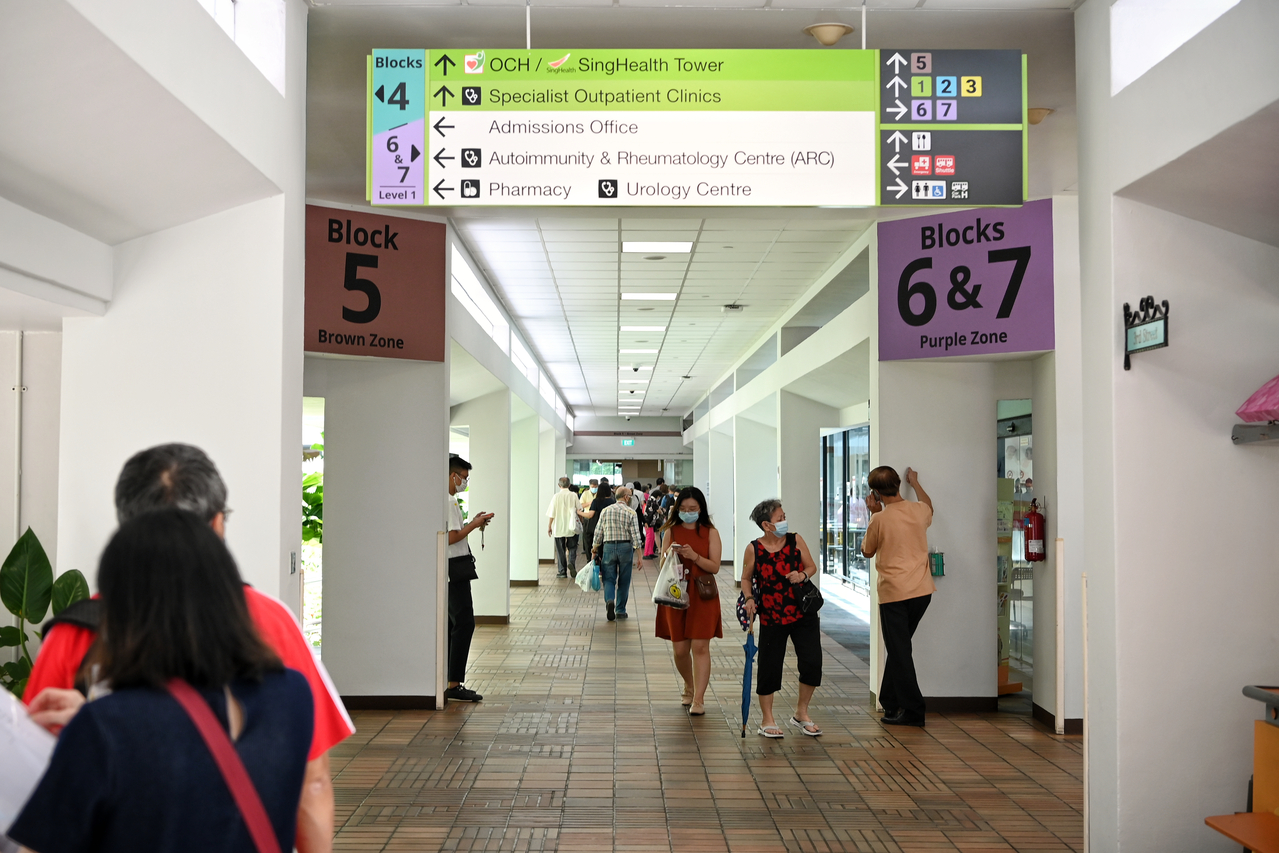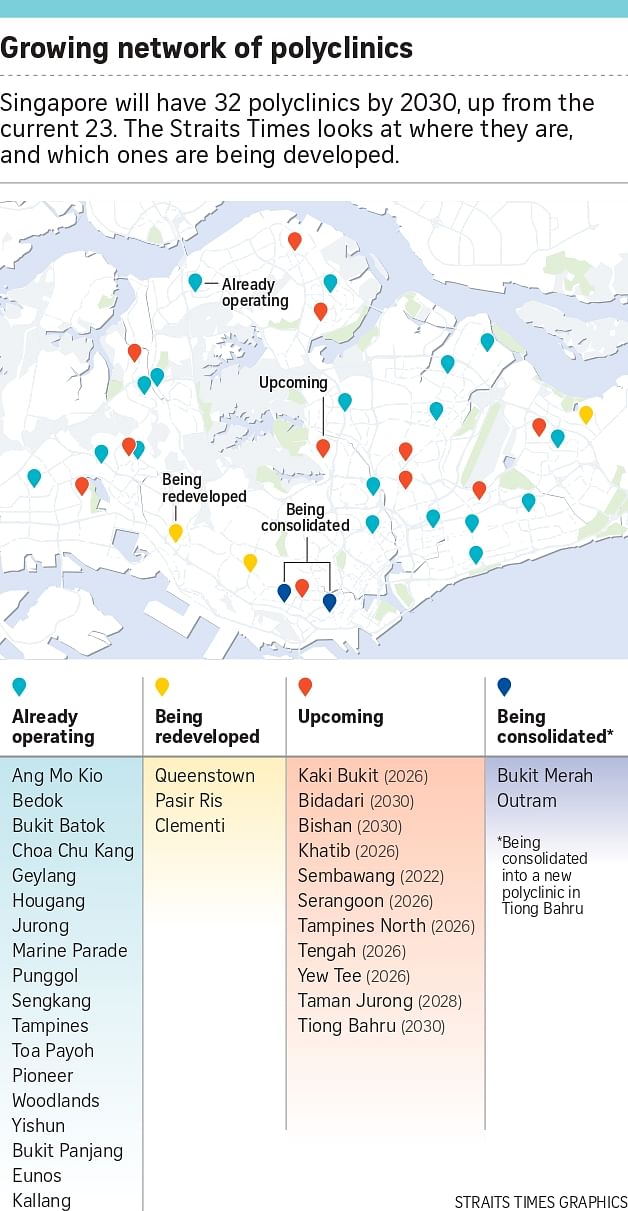Budget debate: Healthcare clusters to get fixed sum for patients under care, instead of getting paid per visit
Sign up now: Get ST's newsletters delivered to your inbox

Hospitals will have a fresh incentive to keep patients healthy through preventive care, which will help keep a lid on overall healthcare costs.
ST PHOTO: KUA CHEE SIONG
Follow topic:
SINGAPORE - Instead of getting paid for each doctor's visit and medical procedure, Singapore's three public healthcare clusters will start getting a fixed sum of money for every person living in the area under their charge.
This means hospitals have a fresh incentive to keep patients healthy through preventive care, which will help keep a lid on overall healthcare costs, said Health Minister Ong Ye Kung on Wednesday (March 9).
Speaking in the debate on his ministry's budget, Mr Ong outlined a broad strategy that will hinge on getting Singaporeans to be cared for by one healthcare cluster, commit to seeing a single family doctor and take up a healthcare plan.
Each of the three clusters - SingHealth, the National Healthcare Group and the National University Health System - will look after up to 1.5 million people, with changes under this new model, known as capitation funding, to start progressively from April.
The scheme will initially start with people aged 40 and older, as this is when chronic illnesses begin to set in. Details will be discussed in a White Paper to be tabled in Parliament later this year.
Explaining the changes in funding, Mr Ong said Singapore has been funding its healthcare clusters largely by their workload, such as the number of treatments and operations.
Under the new model, each cluster's absolute budget will increase slightly, he added. "Appropriate surgery, procedures and treatments will always be provided when required. But with this shift in the basis of funding, there will be a natural incentive for hospitals to try to keep residents healthy through preventive care."
Healthcare clusters’ performance will be assessed based on various outcomes, such as the prevalence of chronic ailments and the cost-effectiveness of treatments.
The move is the latest in a series of measures to keep healthcare costs from increasing further while still meeting the needs of an ageing population.
In his Budget speech last month, Finance Minister Lawrence Wong noted that the upcoming goods and services tax hike is needed to fund necessary and unavoidable government spending on healthcare.
But even this may not be sufficient, given the rate at which healthcare costs are going up, Mr Ong said.
National expenditure on healthcare stood at $24 billion in 2019, with the Government's share of this spending accounting for $11 billion.
But the Ministry of Health (MOH) estimates show that national spending on healthcare is expected to balloon to $59 billion by 2030, with the Government's portion also going up to $27 billion.
The push to get healthcare clusters to take the lead in preventive healthcare will see them working with other providers of health and social support services, recommending activities to help people stay healthy - for instance, taking part in a community gardening programme.
This change also means training healthcare professionals to work in a community setting, Mr Ong said, adding that the plan is to have at least a quarter of Singapore's doctors and nurses in primary and community care, up from one-fifth today.
And to help all healthcare providers better track their patients' medical histories, MOH is also working to link up individual healthcare institutions with the National Electronic Health Record system.
"We want to work towards a scenario that no matter where you are receiving care - for example, at the GP or dental clinics, polyclinics, hospitals, specialist outpatient clinics, nursing homes and eldercare centres - the same data could be retrieved to support your care," he said.
Mr Ong stressed that Singapore's existing healthcare safety net - that is, government subsidies, along with the "three Ms" of MediSave, MediFund and MediShield Life - will always be universal.
The changes aim to expand this universality in coverage beyond medical treatment to preventive care and population health, he said.
"The more well-off and better-informed are already taking better care of their health with coaches, therapists, personal doctors and diet plans," Mr Ong added.
"We want to extend these interventions to the broad population, which will benefit most - those with lower incomes, who do not have the time, resources or the wherewithal to do this."


